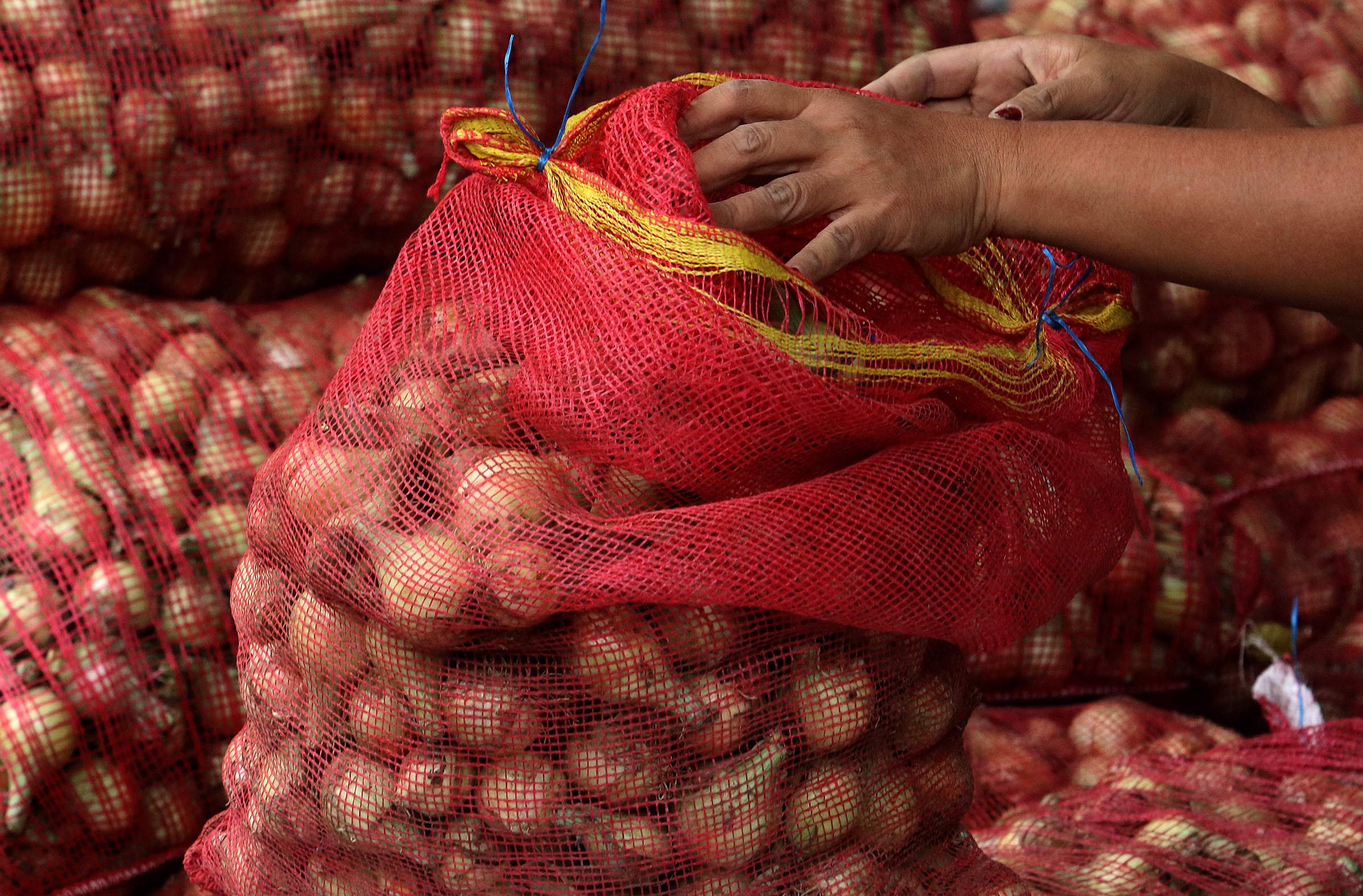
THE members of the National Price Coordinating Council (NPCC) have gathered to tackle measures to stabilize prices and supply of basic and prime goods, such as establishing a “direct link” between onion farmers and institutional buyers to ensure a “steady” supply of local onions, among others, according to the Department of Trade and Industry (DTI).
In a statement on Monday, the Trade department said it continues to intensify its monitoring efforts to ensure the stability and availability of prices and supply of basic prime goods.
It is also assisting the Department of Agriculture (DA) in monitoring the prices of agricultural products such as sugar and onions.
DTI also introduced the recent launch of the Program for Farmer Retail Market.
“This contract farming program seeks to establish a direct link between onion farmers and institutional buyers. This program enables a steady supply of local onions, especially during lean months,” DTI said in a statement on Monday.
For her part, DTI Consumer Protection Group (CPG) Undersecretary Ruth B. Castelo said the DTI assures the public that the government is taking actions to protect their interest and ensure that basic and prime goods remain “reasonably priced” in the market.
Meanwhile, DTI cited the Philippine Statistics Authority (PSA) report that red onion prices in the National Capital Region (NCR) continued to decline since January. It said the same pattern was seen in other regions.
Citing the DA, the Trade department said the prevailing retail prices for a kilo of local commercial rice are P55 (special); P46 (premium); P44 (well-milled), and P38 (regular milled).
For retail sugar in groceries and supermarkets, the Sugar Regulatory Administration (SRA) reported that monitored prevailing prices of the commodity in the NCR as of May 2023 are P87 per kilo for raw and P105 per kilo for refined.
For the Department of Energy (DOE), DTI said it reported that as of May 30,2023, there had been a “cumulative drop” of P4.85 for LPG; P5.05 for diesel; and P6.75 for kerosene.
According to the Department of Health (DOH), prices of essential medicines remain stable due to the increased number of available generic brands on the market. The DOH reported that it regularly issues an SRP for Covid-19 medicines.
For its part, the Philippine Atmospheric, Geophysical, and Astronomical Services Administration (PAGASA) reported that the country will experience El Niño in the next couple of months up to the first quarter of 2024, DTI noted.
PAGASA said 11 to 14 tropical cyclones are expected to develop in the Philippine Area of Responsibility from June to November of this year.
According to an earlier story of the BusinessMirror, Asian Development Bank (ADB) Philippines Country Director Kelly Bird, in a briefing in Incheon, South Korea, said that while the dry spell is not expected to dent Philippine growth, it has the potential of worsening food insecurity and inflation.
“I don’t anticipate that El Niño itself will have a dent on the Philippines’s economic growth; we think it’s at its potential now, around 6 percent, I think that will continue,” Bird said.
“What it can do of course is create another round of food inflation so in that regard it’s gonna be always important that the Philippines and any country is to ensure that there are no restrictions on the importation of food,” he explained.
Meanwhile, the Bangko Sentral ng Pilipinas (BSP) forecasts that the inflation rate is likely to hit 5.5 percent this year.
Image credits: Nonoy Lacza
